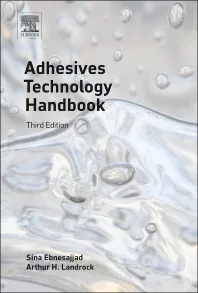NDSU Bio-Research Promises Game-Changing Technology
FARGO, ND –– Several agricultural crops could play a significant role in bio-based resins and coatings recently developed by researchers at North Dakota State University (NDSU). Scientists at NDSU have developed bio-based resins that may prove to be a game changer in coatings and resin technology.
The NDSU researchers have developed a family of resins from renewable raw materials, creating resins that eliminate hazardous components such as formaldehyde and bisphenol-A. The resins are based on sucrose and vegetable oils and can be varied to perform in many applications and industries, according to Dean Webster, Professor in the NDSU Department of Coatings and Polymeric Materials. Webster’s research group includes NDSU graduate students Xiao Pan and T. J. Nelson, undergraduate student Adlina Paramarta and Partha Sengupta, former postdoctoral researcher at NDSU.
The resins developed by the NDSU research group can be made from sugar beets, plus oils from soybeans, flax and sunflowers. When cured, the patent-pending resins show significantly improved properties over current biobased materials and processes, mechanical properties comparable to petrochemical-based materials, and dramatically increased renewable material content.
“These NDSU-developed technologies achieve what few biobased materials have before,” said Webster. “They have vastly improved mechanical properties, reduced hazardous chemical content, and are made from readily available materials and common processes. The technologies have the potential for significantly impacting biobased material markets.” The bio-renewable chemicals market is projected to reach $5 billion by 2015.
The new resins developed at NDSU could further reduce reliance on petrochemical-based materials, one of the main components in many coatings formulations. Webster’s research group found that the epoxidized sucrose ester resins they developed result in materials that are two- to-four times as functional as vegetable-oil-based resins.
One novel UV light-curable coating developed by Webster’s group cures approximately 10 times faster than existing UV-curable biobased coatings. Another in the family of biobased resins developed at NDSU exhibits properties that make it ideally suited for bio-composite materials, baking enamels and structural adhesives. Another resin demonstrates more hardness and resistance to solvents than petrochemical-based coatings.
Laboratory research at NDSU has shown that the green technology resins developed at NDSU are far superior to existing biobased materials and comparable to petrochemical-based materials. The newly-developed resins could be used in a variety of settings including construction, architectural, biomedical, marine and electronics industries. The technology may have wide-ranging applications in areas where thermally cured materials are used, such as in protective coatings, structural adhesives and composites. The resins are synthesized using raw materials, reagents and processes common to industry.
Funding for the biobased coatings research was provided by the U.S. Department of Agriculture (USDA) Cooperative State Research, Education, and Extension Service. The United Soybean Board is sponsoring current biobased coatings research at NDSU. The base sucrose ester resins used in this research were provided by P&G Chemicals.
Webster has been involved in polymer synthesis and structure-property relationships of coating binder systems for more than 20 years. He is receiving the Roy W. Tess Award in Coatings from the American Chemical Society on August 29, 2011, during the group’s annual meeting in Denver, CO.
The NDSU researchers have developed a family of resins from renewable raw materials, creating resins that eliminate hazardous components such as formaldehyde and bisphenol-A. The resins are based on sucrose and vegetable oils and can be varied to perform in many applications and industries, according to Dean Webster, Professor in the NDSU Department of Coatings and Polymeric Materials. Webster’s research group includes NDSU graduate students Xiao Pan and T. J. Nelson, undergraduate student Adlina Paramarta and Partha Sengupta, former postdoctoral researcher at NDSU.
The resins developed by the NDSU research group can be made from sugar beets, plus oils from soybeans, flax and sunflowers. When cured, the patent-pending resins show significantly improved properties over current biobased materials and processes, mechanical properties comparable to petrochemical-based materials, and dramatically increased renewable material content.
“These NDSU-developed technologies achieve what few biobased materials have before,” said Webster. “They have vastly improved mechanical properties, reduced hazardous chemical content, and are made from readily available materials and common processes. The technologies have the potential for significantly impacting biobased material markets.” The bio-renewable chemicals market is projected to reach $5 billion by 2015.
The new resins developed at NDSU could further reduce reliance on petrochemical-based materials, one of the main components in many coatings formulations. Webster’s research group found that the epoxidized sucrose ester resins they developed result in materials that are two- to-four times as functional as vegetable-oil-based resins.
One novel UV light-curable coating developed by Webster’s group cures approximately 10 times faster than existing UV-curable biobased coatings. Another in the family of biobased resins developed at NDSU exhibits properties that make it ideally suited for bio-composite materials, baking enamels and structural adhesives. Another resin demonstrates more hardness and resistance to solvents than petrochemical-based coatings.
Laboratory research at NDSU has shown that the green technology resins developed at NDSU are far superior to existing biobased materials and comparable to petrochemical-based materials. The newly-developed resins could be used in a variety of settings including construction, architectural, biomedical, marine and electronics industries. The technology may have wide-ranging applications in areas where thermally cured materials are used, such as in protective coatings, structural adhesives and composites. The resins are synthesized using raw materials, reagents and processes common to industry.
Funding for the biobased coatings research was provided by the U.S. Department of Agriculture (USDA) Cooperative State Research, Education, and Extension Service. The United Soybean Board is sponsoring current biobased coatings research at NDSU. The base sucrose ester resins used in this research were provided by P&G Chemicals.
Webster has been involved in polymer synthesis and structure-property relationships of coating binder systems for more than 20 years. He is receiving the Roy W. Tess Award in Coatings from the American Chemical Society on August 29, 2011, during the group’s annual meeting in Denver, CO.
Looking for a reprint of this article?
From high-res PDFs to custom plaques, order your copy today!





